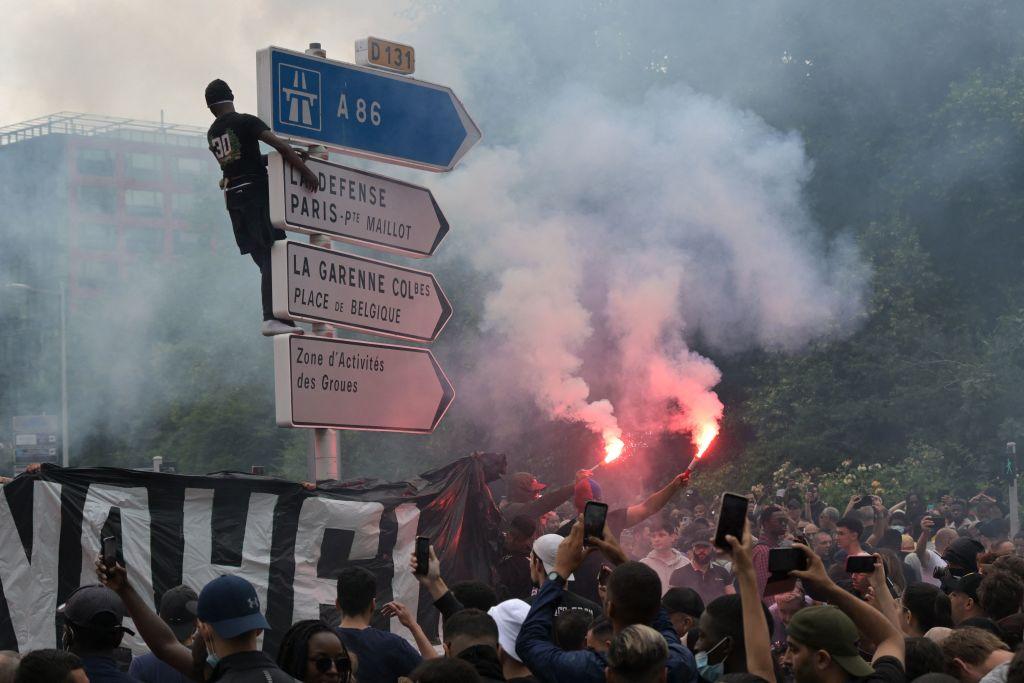
Planet A
The European Commission has adopted a joint communication setting out a framework to address ‘the growing impact of climate change and environmental degradation in the fields of peace, security, and defence’. It builds on the recent pledge by the EU and NATO to strengthen cooperation on addressing the security implications of climate change.
The EU framework identifies four main priorities: strengthening planning, decision-making and implementation through evidence-based analysis; integrating responses to climate and security challenges in external EU actions; enhancing the climate adaptation and mitigation measures of member states’ civilian and military operations; reinforcing international partnerships through multilateral forums.
The document outlines a number of measures to facilitate each of these priorities, including establishing a climate and security data and analysis hub, developing conflict risk models to bolster early warning capacity, and deploying environmental advisers to all EU missions and operations.
Democracy watch
French police have come under renewed scrutiny following last month’s fatal shooting of a teenager of Algerian and Moroccan descent, after video emerged of a brutal arrest during an annual rally against police violence. Images showed the brother of a black man who died in custody in 2016 being wrestled to the ground by officers from a controversial rapid reaction force. The events have rekindled pent-up frustrations and accusations of institutional racism and resulted in violent clashes between demonstrators and police.
Rights groups have long criticised the crowd-control methods used by French law enforcement. A UN committee issued a statement urging France to pass legislation that defines and prohibits racial profiling. France’s foreign ministry dismissed the remarks as ‘excessive’ and ‘unfounded’.
The government wants to avoid a repeat of the 2005 riots that shook France’s multiracial communities and has banned the sale, possession, transport and use of fireworks ahead of the Bastille Day national holiday.
Information operations
YouTube has shut down the accounts of three users identified by South Korean intelligence as tools of North Korea’s psychological warfare efforts. The three video bloggers, or vloggers, were purportedly linked to North Korean state media and had been blocked domestically by Seoul. YouTube’s parent company, Google, said last year that the accounts didn’t violate its policies.
In a statement about the company’s decision to remove the accounts, a YouTube spokesperson noted: ‘Google is committed to compliance with applicable US sanctions and trade compliance laws, including those related to North Korea.’
The vloggers were English-speaking young women and children who posted about their lives in North Korea, discussing seemingly mundane activities like visiting tourist sites and reading Harry Potter books. According to South Korea’s National Intelligence Service, they were meant to add a veil of normality over the harsh realities of life in North Korea. Analysts have noted that most people in North Korea don’t have access to the internet and that such content is impossible to produce and circulate unless it is tied to the state media.
Follow the money
The US Treasury has imposed sanctions on four companies accused of funding Russia’s Wagner mercenary group. In a statement released last month, the Treasury said that these companies based in the United Arab Emirates, the Central African Republic and Russia had ‘engaged in illicit gold dealings’ to sustain and expand the group’s armed forces, including in Ukraine and some African countries.
Implementation of the sanctions had been on hold because US officials wanted to avoid appearing to favour a side in the recent power struggle between Wagner chief Yevgeny Prigozhin and Russian President Vladimir Putin.
The Wagner Group was first identified in 2014 when it started backing pro-Russian separatist forces in eastern Ukraine and has since grown into a sprawling international business with mining interests and fighters across Africa and the Middle East. Following last month’s failed mutiny, it’s unclear what will happen with Prigozhin and his private army in Ukraine and elsewhere.
Terror byte
Indian National Security Adviser Ajay Doval has urged the UK to address the threat of Khalistani extremism directed at Indian high commission officials by taking strong public action such as deportation and legal prosecution. Doval raised the issue while engaging with his UK counterpart, Tim Barrow, at last week’s India–UK strategic dialogue.
Doval’s comments came a day after India issued a stern message to foreign governments about pro-Khalistan posters surfacing in the UK, the US, Canada and Australia. New Delhi has expressed concerns that the UK may be downplaying the issue of Khalistani extremism.
‘Khalistan’ refers to a proposed independent Sikh state in Punjab, and is a movement that has attracted both domestic and international support from a small but influential number of Sikh extremists. The UK has been an ongoing target of Khalistani extremism. In one recent incident, a Khalistani supporter in London pulled down the Indian flag from the high commission’s balcony as part of a protest.